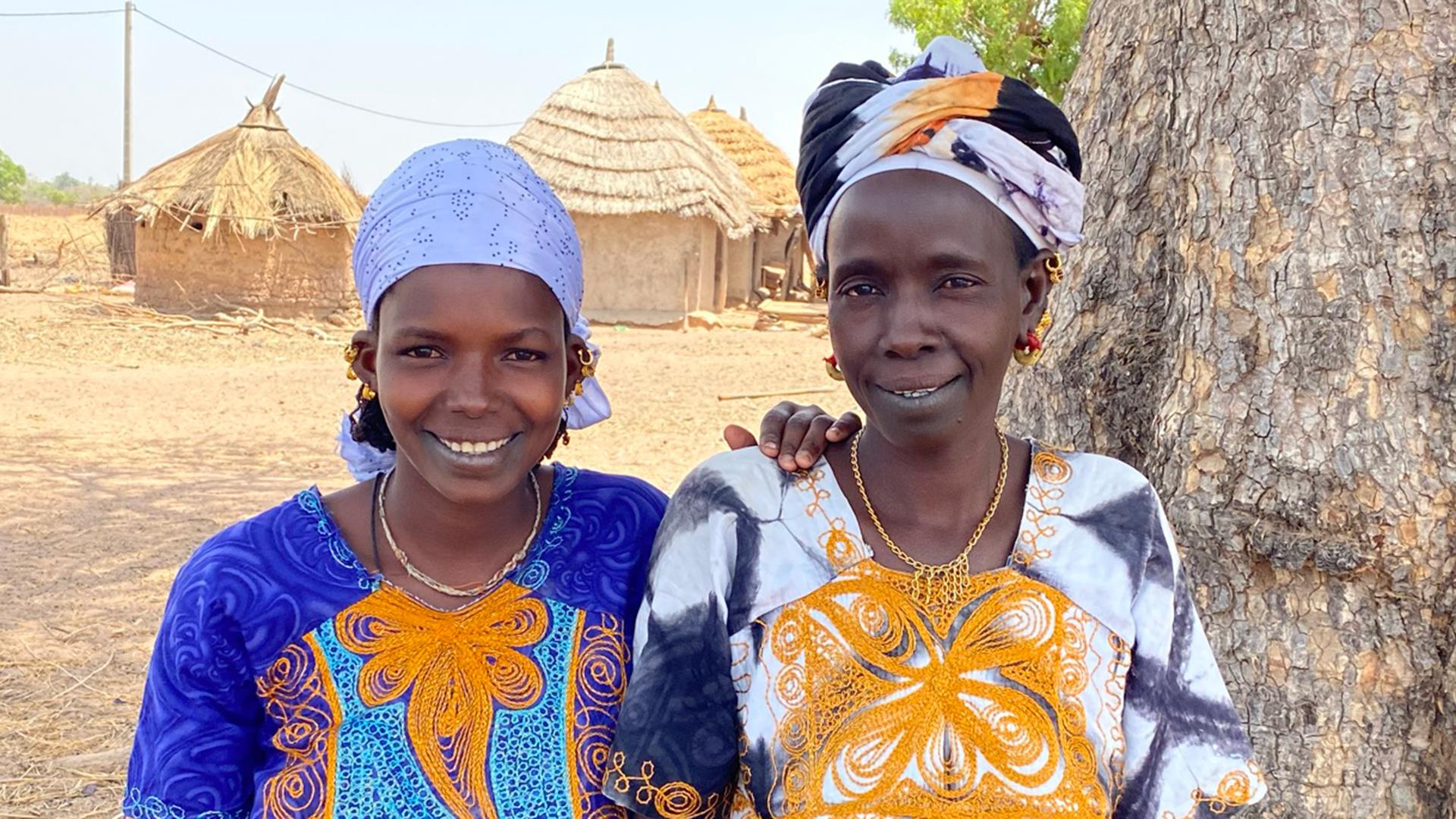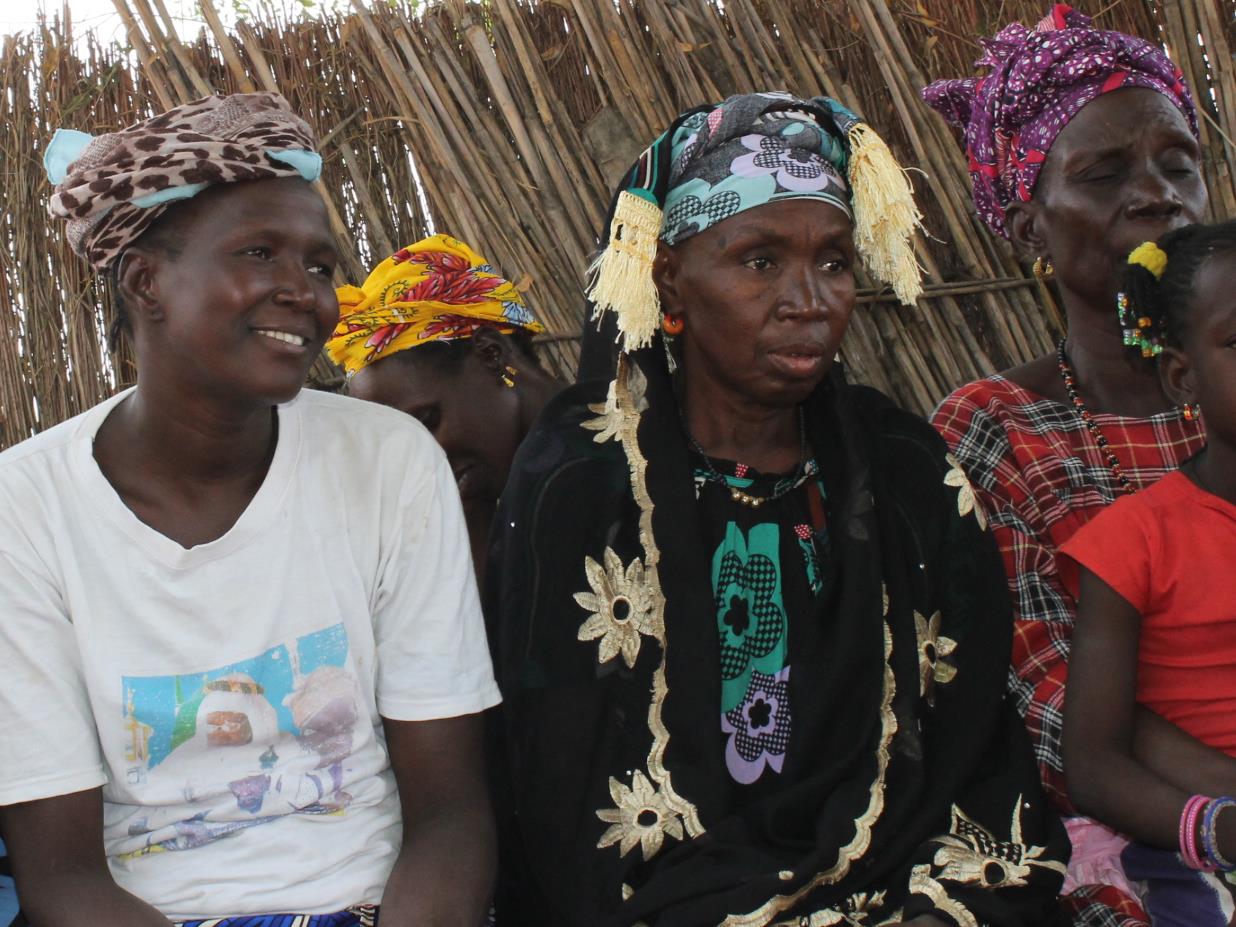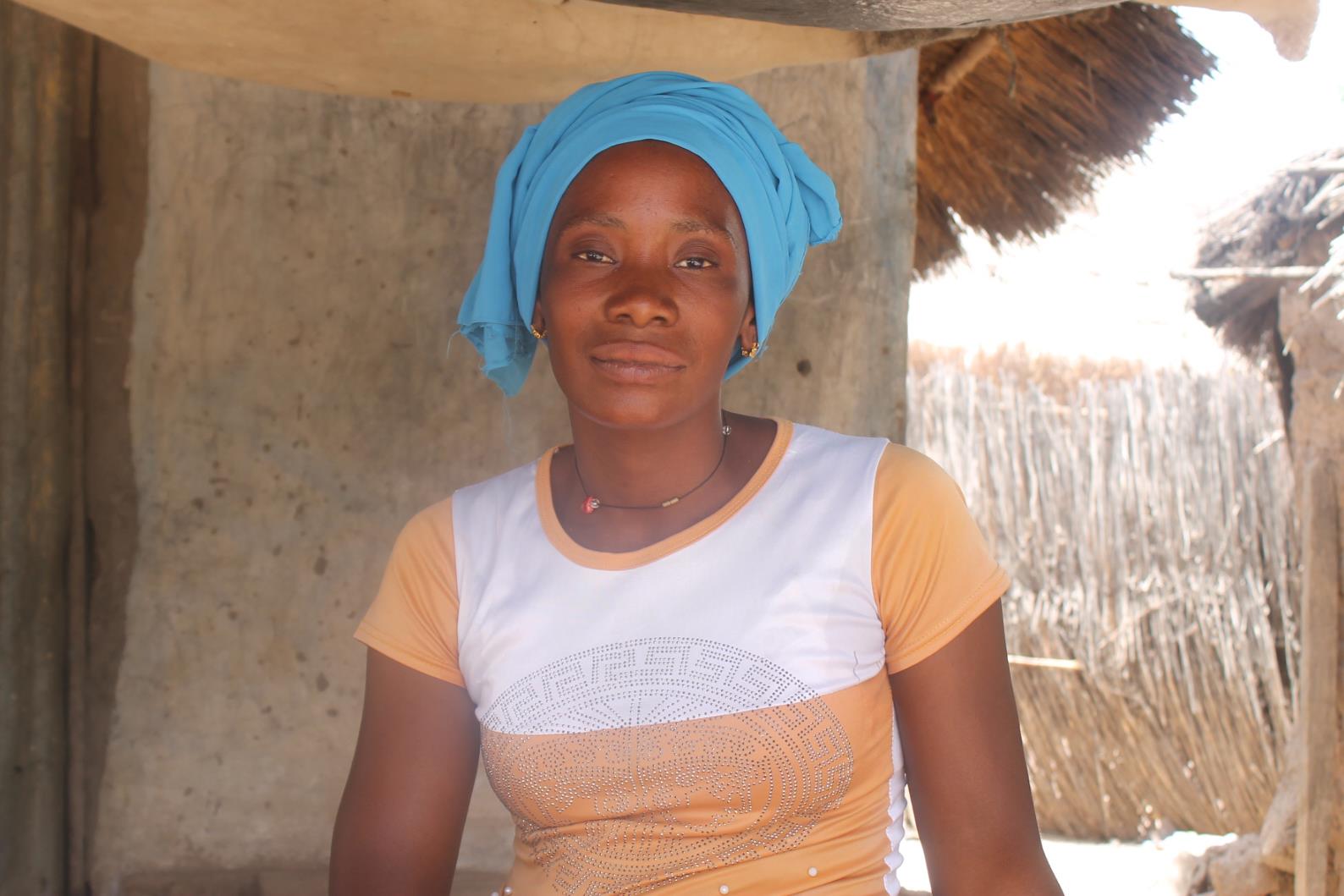
Speaking up and out about gender-based violence
Towards ending gender-based violence and early marriages in Senegal and sub-Saharan Africa
All over the world, women encounter many forms of gender-based violence. Early marriage is one of these forms, taking away a girl’s opportunity for education and gaining skills to be independent. ©FAO/ Andrea Sanchez Enciso
04/12/2023
When asked about what constitutes gender-based violence, women participating in Dimitra Clubs in Niger shared that they feel the violence in many forms. Physical and sexual abuse are obvious manifestations, but women also felt that pervasive social norms, such as not being able to remarry after being widowed, not being involved in households’ financial decisions and not being allowed to participate in certain community activities, made them feel like lesser members or outcasts of their communities. Along with this, a big issue for women in many communities is being forced to marry or being married at an early age.
In Niger, 76 percent of girls are married before the age of 18. In the Democratic Republic of Congo, it is almost a third of girls. This is also true in rural Senegal, where 31 percent of girls are married before the age of 18 and nine percent before 15.
Beyond being a violation of human rights, child marriage diminishes development efforts and halts the progress and production of societies. This practice hinders girl children from earning an education, limiting their options later in life. It leads to increased health issues, with young women facing more complications during pregnancies and childbirth. Early marriage also breeds a reliance on men as young women often have had little schooling or opportunity to gain the skills to make their own living.
The Food and Agriculture Organization of the United Nations (FAO) has implemented several projects in rural Senegal to raise awareness among all members of the community about the dangers of this practice, for girl children but also for the community at large.
FAO works with communities to set up discussion and action groups called Dimitra Clubs. Trained by FAO, implementing partners in the country inform communities about the concept of the Dimitra Clubs and help them set up autonomous groups. Sometimes all women or all men, sometimes only youth or sometimes mixed, these clubs meet regularly to identify a community’s pressing problems. Each club chooses a focal point to facilitate the discussions, and the members, and others in the community, look together for solutions to overcome the issues raised.


FAO works with communities to set up discussion and action groups called Dimitra Clubs, safe and inclusive spaces where rural women and men find solutions to community issues. ©FAO/Andrea Sanchez Enciso
In the village of Kouthia Farindalla Mandingue, in the Tambacounda region of eastern Senegal, early marriage and gender-based violence were among the most pressing issues flagged by women and addressed in these clubs. Traditionally, girls in this village were arranged to be married at the age of 14 or 15 years old.
Mawdo Diarra, a Dimitra Club leader describes, “Thanks to the clubs, we were able to identify early marriage as a community problem. Then we raised it with the village chief and discussed it in the meetings of the different clubs: women, men, adults and young people. We were able to find a consensus, so that from now on, girls are not married before 18 or 19 years old. Now, thanks to the abandonment of early marriage, women also experience fewer problems during pregnancy.”
This decision taken two years prior is still in effect today, and the village has prospered thanks to it. Solutions found in Dimitra Clubs tend to stick as they are endogenous, building on the realities and capacities of the rural communities themselves without external involvement.

Dimitra Club leader, Mawdo Diarra (photographed above), describes how the clubs have helped end the practice of early marriage in her village. Dimitra clubs breed behavioral changes that lead to better power relations between men and women, reducing gender-based violence and discriminatory practices. ©FAO/ Andrea Sanchez Enciso
Helping women find their voices
In the clubs, women gain the self-confidence to speak up in public and voice their opinions and needs. Thanks to these changes, many women who took part in the Dimitra Clubs now actively participate as leaders in decision-making processes of their communities.
Dimitra Club and community leader Assietou Diallo says, “Before the arrival of the Dimitra Clubs, the voice of women didn’t count; they couldn’t give their ideas… Now all of this has changed. Women and young people can bring their ideas to the table, and they are taken into account, as they are recognized as useful members of the community.”
Fatou Ngom says, “I am very grateful to the Dimitra Clubs. Take me as an example: before, I didn’t attend organized community meetings. Women didn’t know about the works and activities taking place in the village. We didn’t have the right to speak. But thanks to the Dimitra Clubs, I dared to take part in the community meetings and give my opinion.”
These behavioral changes and better power relations between men and women both in the household and in the community tend to reduce gender-based violence and discriminatory practices. Both husband and wives report decreasing incidents of violence and discrimination.
In Senegal, the clubs have been integrated in several FAO projects, including ones funded by the Global Environment Facility (GEF) and the United Nations Peace-Building Fund, that focus on strengthening the climate resilience and role of women in peace. Today there are over 800 active Dimitra Clubs in 219 villages of Senegal, with over 24 000 people taking part.
Worldwide, over 8 500 FAO Dimitra Clubs exist, comprising more than 255 000 rural women and men. Throughout thousands of rural communities in Asia, Latin America and the Caribbean, Near East and sub-Saharan Africa, these clubs function within the framework of projects facilitating people’s empowerment. It is estimated that eight million rural people are benefitting from the initiatives carried out by the clubs.
Related links
Learn more

